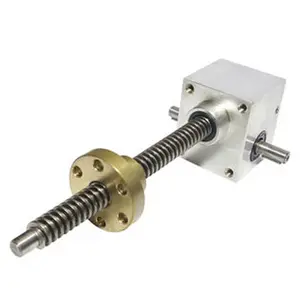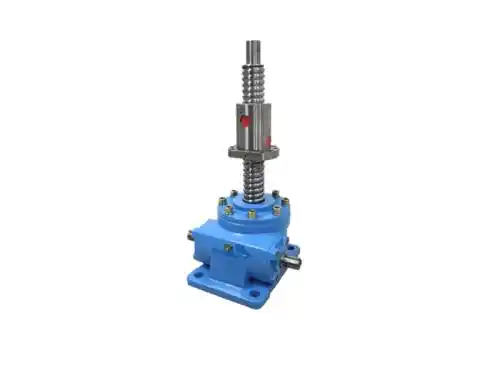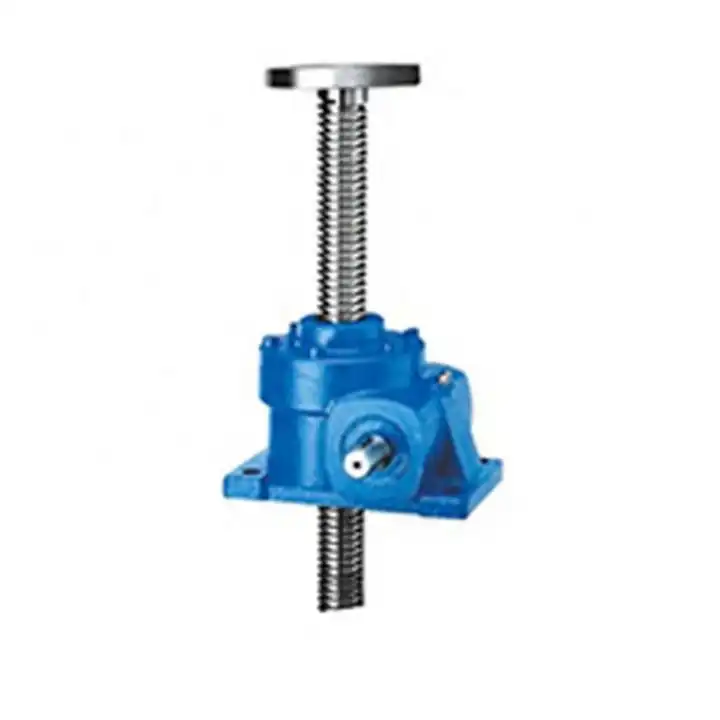Product Description
Spare part of Screw Type Sludge Dewatering Machine : Screw Shaft
Component diagram
Working principle
As equipment starts running, sludge flows into the filter cylinder and moves CHINAMFG to sludge cake outlet under the thrust from screw shaft. The whole filter cylinder is composed of fixed rings, moving rings and shaft. The first 2 sections are thickening zone, last 2 are dewatering zone, The space between screw blades gets more and more narrower, which means the inner pressure gradually gets bigger. Under this pressure, liquid is squeezed out from the sludge and leaks from the small gaps between rings. And the left dry CHINAMFG is pushed to the sludge cake outlet.
Reasons of wear
♦ Friction between sediment and screw shaft
♦ Friction between moving rings and screw shaft blade
♦ The inner pressure during dewatering
Our solutions
♦ SS304 material
♦ Edge charmfer design
♦ Surface hardening coating
Why us
♦ Everything is designed for reducing the attrition, so as to extend the service life.
♦ We are manufacturer and have our own workshop, so that best quality and lowest price could be provided for you.
♦ Custom-made is available according to the dimension you provided.
♦ All our products have CE certification.
Contact Us
YEW
Web: yxpioniere
| Material: | Stainless Steel 304/316 |
|---|---|
| Method: | Physical Treatment |
| Usage: | Industrial, Home, Agriculture, Hospital |
| Certification: | CE/UL |
| Application: | Screw Press |
| Replacement Period: | 10000h |
| Customization: |
Available
| Customized Request |
|---|

How do screw jacks contribute to the safety of tasks like vehicle maintenance?
Screw jacks play a crucial role in ensuring the safety of tasks like vehicle maintenance. They provide stability, lifting capabilities, and precise control, which are essential for safe and efficient maintenance operations. Here’s how screw jacks contribute to safety in vehicle maintenance:
- Stability and Load Capacity: Screw jacks are designed to provide high stability and support heavy loads. When used in vehicle maintenance, they offer a solid and secure platform for lifting and supporting the vehicle. This stability ensures that the vehicle remains steady during maintenance tasks, reducing the risk of accidents or injuries caused by uncontrolled movement or instability.
- Precise Height Adjustment: Screw jacks allow for precise height adjustment, enabling mechanics to position the vehicle at the desired working height. This precise control ensures that the vehicle is at an optimal height for accessing various components, performing inspections, or conducting repairs. It helps maintain a comfortable working posture for mechanics, minimizing the risk of strain or injury.
- Locking Mechanisms: Screw jacks often incorporate locking mechanisms to securely hold the lifted load in position. These locking mechanisms prevent accidental lowering of the vehicle during maintenance tasks, providing an additional layer of safety. Even in the event of power loss or system failure, the locking mechanism ensures that the vehicle remains elevated, reducing the risk of injury or damage.
- Even Weight Distribution: When multiple screw jacks are used in a synchronized system, they distribute the load evenly, ensuring balanced support. This even weight distribution minimizes stress on individual components and prevents overloading, reducing the risk of equipment failure or accidents caused by imbalanced loads.
- Integration with Safety Systems: Screw jacks can be integrated with safety systems to enhance overall safety during vehicle maintenance tasks. For example, limit switches or proximity sensors can be used to prevent the screw jacks from exceeding their maximum or minimum height limits. Emergency stop buttons or safety interlocks can be integrated into the control system, allowing immediate halting of the lifting operation in case of emergencies or hazardous situations.
The combination of stability, precise control, locking mechanisms, even weight distribution, and integration with safety systems makes screw jacks a reliable and safe solution for vehicle maintenance tasks. They provide mechanics with a secure working platform, reduce the risk of accidents, and contribute to the overall safety and efficiency of vehicle maintenance operations.

Are there different types of screw jacks available for various load capacities?
Yes, there are different types of screw jacks available to accommodate various load capacities. Screw jacks are designed in different configurations and sizes to provide optimal performance and lifting capabilities for a wide range of loads. The load capacity of a screw jack depends on several factors, including the mechanical design, materials used, and the specific application requirements. Here are some common types of screw jacks based on load capacities:
- Miniature Screw Jacks: Miniature screw jacks are compact and lightweight, designed to handle relatively low loads. These screw jacks are commonly used in applications where precise positioning or small load adjustments are required. Miniature screw jacks find applications in industries such as electronics, optics, and small-scale automation systems.
- Standard Duty Screw Jacks: Standard duty screw jacks are versatile and widely used in various industrial applications. They are designed to handle moderate to high loads. These screw jacks offer a balance between load capacity and compactness, making them suitable for a wide range of lifting and positioning tasks in industries such as manufacturing, construction, and material handling.
- Heavy Duty Screw Jacks: Heavy-duty screw jacks are specifically engineered to handle large and heavy loads. These screw jacks are characterized by their robust construction, high load capacities, and enhanced durability. Heavy-duty screw jacks are utilized in applications that involve heavy machinery, industrial presses, large-scale manufacturing, and other scenarios requiring substantial lifting forces.
- Stainless Steel Screw Jacks: Stainless steel screw jacks are designed for applications where corrosion resistance and hygiene are crucial. These screw jacks are constructed using stainless steel components that offer excellent resistance to rust, chemicals, and environmental factors. Stainless steel screw jacks find applications in food processing, pharmaceuticals, clean rooms, and other industries with stringent cleanliness requirements.
- Customized Screw Jacks: In addition to standard types, manufacturers also offer customized screw jacks tailored to specific load capacities and application requirements. Customized screw jacks can be engineered to handle extremely high loads or designed for unique lifting scenarios where off-the-shelf solutions may not be suitable. These customized screw jacks are often developed in collaboration with the customer to ensure optimal performance and reliability.
The availability of different types of screw jacks allows users to select the appropriate solution based on their specific load capacities and application needs. By offering a range of load capacities, manufacturers ensure that there is a suitable screw jack available for a wide variety of lifting and positioning tasks across various industries.

How do screw jacks handle variations in load, speed, and precision?
Screw jacks are designed to handle variations in load, speed, and precision through several mechanisms and features. Here’s how screw jacks handle these variations:
- Load Variations: Screw jacks are capable of handling different load variations. The load capacity of a screw jack depends on factors such as the mechanical strength of the components, the thread design, and the material properties. By selecting the appropriate screw jack with the required load capacity and considering factors such as the load distribution, safety factors, and duty cycle, variations in load can be accommodated within the specified limits.
- Speed Variations: Screw jacks can operate at different speeds based on the application requirements. The speed of a screw jack is influenced by factors such as the pitch of the screw, the rotational speed of the input device, and the mechanical advantage of the system. By adjusting the rotational speed of the input device or selecting screw jacks with different pitch options, variations in speed can be achieved. It is important to note that higher speeds may affect the efficiency, accuracy, and load capacity of the screw jack system.
- Precision: Screw jacks offer precise positioning capabilities. The linear displacement achieved per revolution of the screw can be accurately controlled. This precision is achieved through the pitch of the screw, which determines the linear displacement per rotation. By selecting screw jacks with suitable pitch options and incorporating additional components such as limit switches or position sensors, precise positioning can be achieved with minimal backlash or play. It is important to consider the required level of precision and the specific application’s tolerance requirements when choosing the appropriate screw jack.
- Adjustability: Screw jacks provide adjustability to accommodate variations in load, speed, and precision. The system can be fine-tuned by adjusting the input device’s rotational speed, changing the pitch of the screw, or incorporating gearing mechanisms for increased mechanical advantage. This adjustability allows for optimization based on the specific operational requirements, ensuring that the screw jack system performs effectively within the desired parameters.
- Control and Feedback: Screw jacks can be equipped with control systems and feedback mechanisms to enhance load, speed, and precision management. These systems can include motor controllers, position sensors, limit switches, or even automation interfaces. By integrating such control and feedback mechanisms, the screw jack system can be monitored, adjusted, and actively controlled to handle variations in load, speed, and precision more effectively.
In summary, screw jacks handle variations in load, speed, and precision through their design features, adjustability, and the incorporation of control systems. By selecting the appropriate screw jack and considering factors such as load capacity, speed requirements, precision needs, and control mechanisms, variations in load, speed, and precision can be accommodated to meet the specific operational demands of the application.


editor by CX 2023-11-14